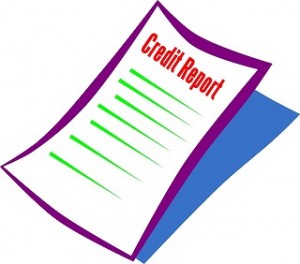 Most Americans have now arrived at the conclusion that it is a good time to buy a home. That’s the top line analysis from one of the country’s major mortgage creators, but there’s a secondary finding about credit scores that could also have a sizeable impact on Sapphire real estate activity. Some would-be Sapphire homeowners would benefit from learning the information—which is about misinformation.
Most Americans have now arrived at the conclusion that it is a good time to buy a home. That’s the top line analysis from one of the country’s major mortgage creators, but there’s a secondary finding about credit scores that could also have a sizeable impact on Sapphire real estate activity. Some would-be Sapphire homeowners would benefit from learning the information—which is about misinformation.
The second annual “Wells Fargo Homeownership Survey” is a national survey of 2,016 respondents, and the source upon which last week’s Franklin Codel analysis is based. The excellent news for current and soon-to-be Sapphire home sellers is that a whopping 72% of respondents think now is a good time to buy a home. Most Americans also agree that “owning a home remains a vital part” of the American dream— and continues to be a key element in the strength of the nation.
Running counter to that upbeat survey result is the finding that despite the efforts of lenders (and the government) to make credit more available to potential mortgage applicants, two misconceptions are widespread enough that they are “holding many potential buyers back.”
The misinformation:
- The misconception that every buyer must have at least 20% for a down payment; and
- A belief that credit scores alone determine whether an applicant will land a home loan
Under the heading The legend of the 20% down payment, Wells Fargo’s Codel points out that 36% of the general population (and larger proportions of minority groups) qualify for loans with lower down payment options— some of them as low as 3%.
But equally illuminating is what Codel has to say about the importance of credit scores. He is the head of mortgage production at Wells Fargo, so Sapphire home seekers can be expected to pay attention to what he has to say, which is that credit scores are not as all-important as most people think. Because creditworthiness is not determined based on a single factor, homebuyers should do some investigating of their options “before excluding themselves based on credit scores alone.” And when it comes to the actual scores themselves, it’s not true that a ‘good credit score’ has to be above 780. There are multiple models and investor guidelines—and under some of them, more than 660 “is generally considered good.”
If it’s true that Sapphire homebuyers agree that now is the time to make a foray into the market, it’s refreshing (and rare) to hear a top mortgage lending insider provide that kind of encouragement. His conclusion is that the cited misconceptions can be overcome with a “better understanding of how credit works”—and that a good lender will use a borrower’s “entire financial picture, not just credit score” to decide whether to issue a mortgage.
The takeaway is for prospective buyers to do some investigating to find out what their home owning prospects actually are: they might be pleasantly surprised. A good place to start: giving me a call!


 You may have wondered why there are credit repair companies out there, since the credit reporting agencies have to allow any Sapphire consumer to dispute incorrect line items on their own. The big Credit Reporting Agencies (“CRAs”) even have online systems for challenging erroneous information. The Agency must act speedily to investigate and correct any false information. Soooo, why pay someone else to just fill out their form?
You may have wondered why there are credit repair companies out there, since the credit reporting agencies have to allow any Sapphire consumer to dispute incorrect line items on their own. The big Credit Reporting Agencies (“CRAs”) even have online systems for challenging erroneous information. The Agency must act speedily to investigate and correct any false information. Soooo, why pay someone else to just fill out their form? They really ought to teach this stuff in school: real-life, day-to-day economics. Highlands youngsters out on their own for the first time are usually left to trial and error when it comes to mastering things like how to lay out a personal budget or use credit advantageously. Or even how to go about selecting a bank, or opening a checking account…
They really ought to teach this stuff in school: real-life, day-to-day economics. Highlands youngsters out on their own for the first time are usually left to trial and error when it comes to mastering things like how to lay out a personal budget or use credit advantageously. Or even how to go about selecting a bank, or opening a checking account… It may not be the first factor you look at when you begin planning to buy a Highlands house, but unless you are in the rare position of being able to make an all-cash purchase, sooner or later your credit score will become a prominent factor. That’s why this month’s get-together in Washington held some information that could ultimately become pretty important for both Highlands home buyers and sellers.
It may not be the first factor you look at when you begin planning to buy a Highlands house, but unless you are in the rare position of being able to make an all-cash purchase, sooner or later your credit score will become a prominent factor. That’s why this month’s get-together in Washington held some information that could ultimately become pretty important for both Highlands home buyers and sellers. For anyone who has looked into to buying a Glenville home several times—but kept getting discouraged every time because of a negative credit report—read on!
For anyone who has looked into to buying a Glenville home several times—but kept getting discouraged every time because of a negative credit report—read on!
